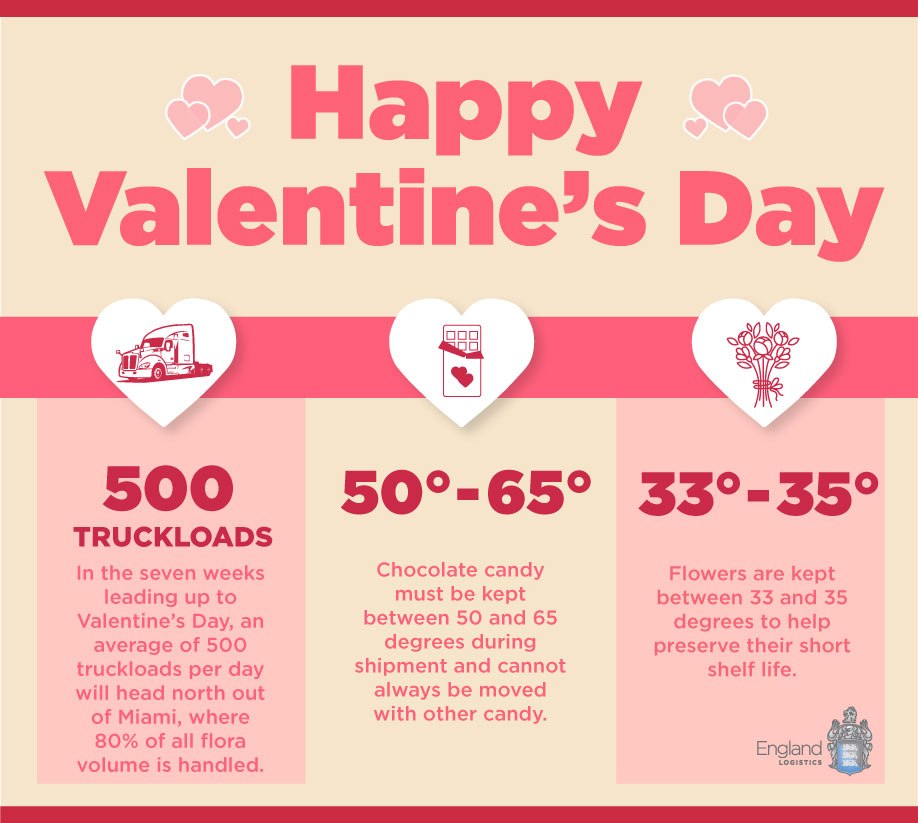![]()
Love is in the air, and so is the scent of fresh flowers. It is estimated 110 million roses will be sold and delivered in a three-day time period for Valentine’s Day. In addition to floral gifts, chocolates and other candies are popular purchases. Both common presents are shipped in great quantities to be available for purchase in time for the holiday. However, chocolate and flowers have to be transported at specific temperatures in order to be intact upon arrival.
Flowers
In the seven weeks leading up to Valentine’s Day, an average of 500 truckloads of flowers per day will head north out of Miami. Flowers are delicate and must be shipped at 33-35 degrees to stay fresh for as long as possible. From the second they are cut, each bouquet has a limited shelf life. Maintaining a cold temperature for the duration of their trip to stores can help extend their lifespan. However, if they are allowed to warm up too much, they will begin to wilt and may not remain a viable product.
Chocolate
Similarly, chocolate candy must be kept between 50-65 degrees during shipment. This ensures that the candy retains its shape and does not crack or melt during transport. Due to the temperature requirements of chocolate, it cannot always be shipped with other candy.
This means it requires special attention and must be packed carefully.
—
The England Carrier Services (ECS) division offers various services for carriers ranging from maintenance to support. As ECS members, carriers have access to nationwide discounts on fuel and tires from dedicated team members committed to finding the best price. ECS also provides factoring services with benefits such as same-day funding to a bank account or fuel card. These options allow carriers the freedom to focus on growing their business while saving time and money.



